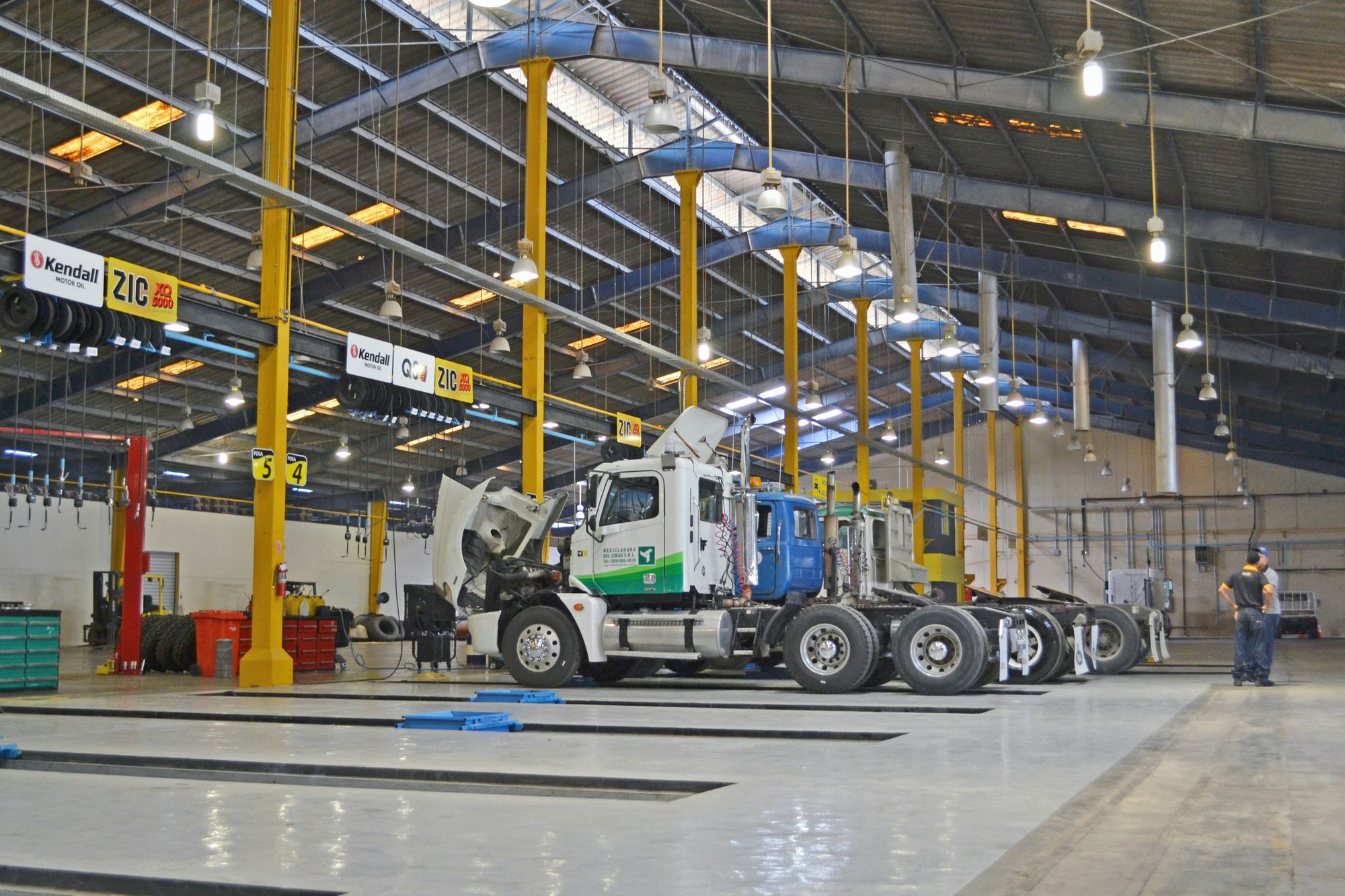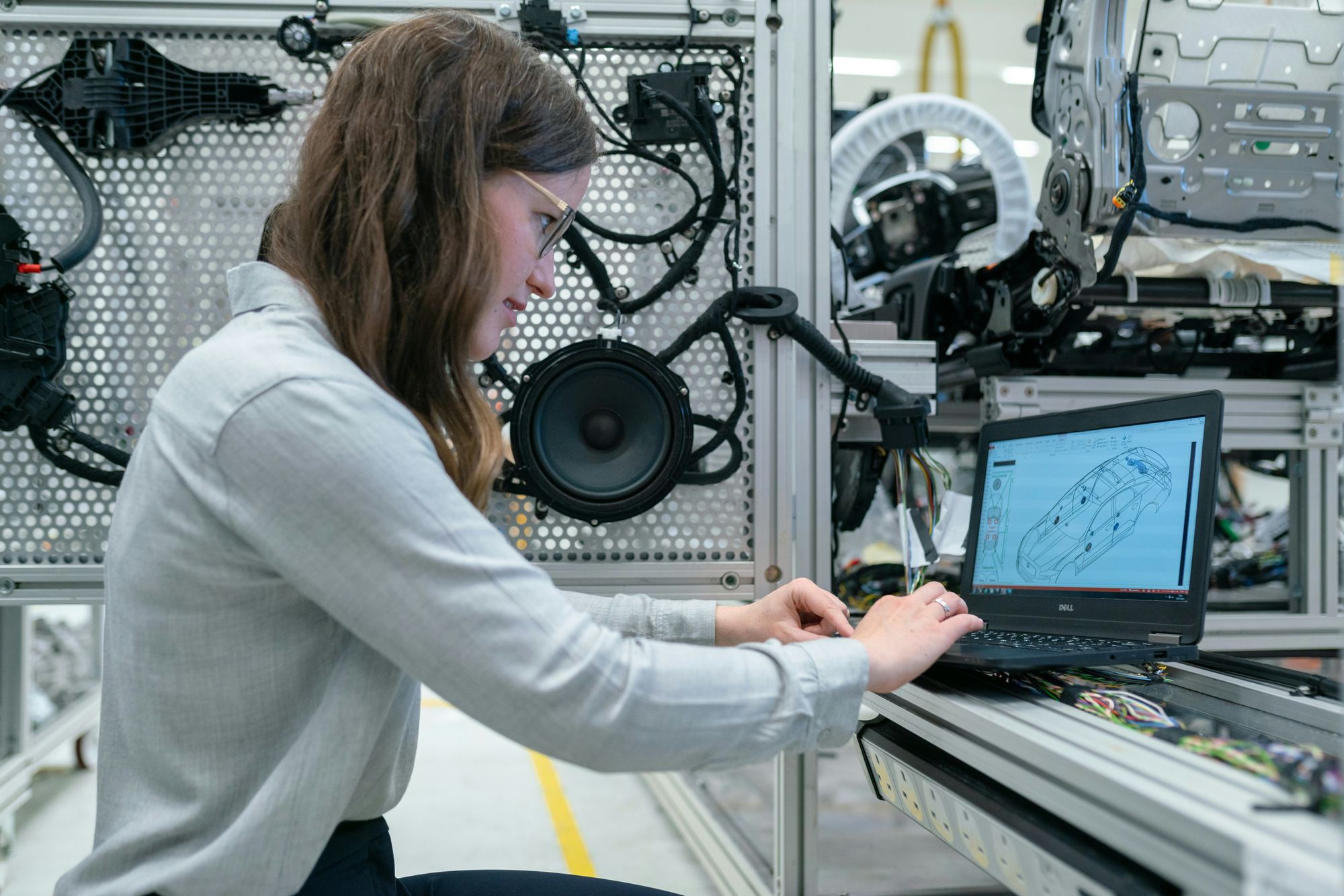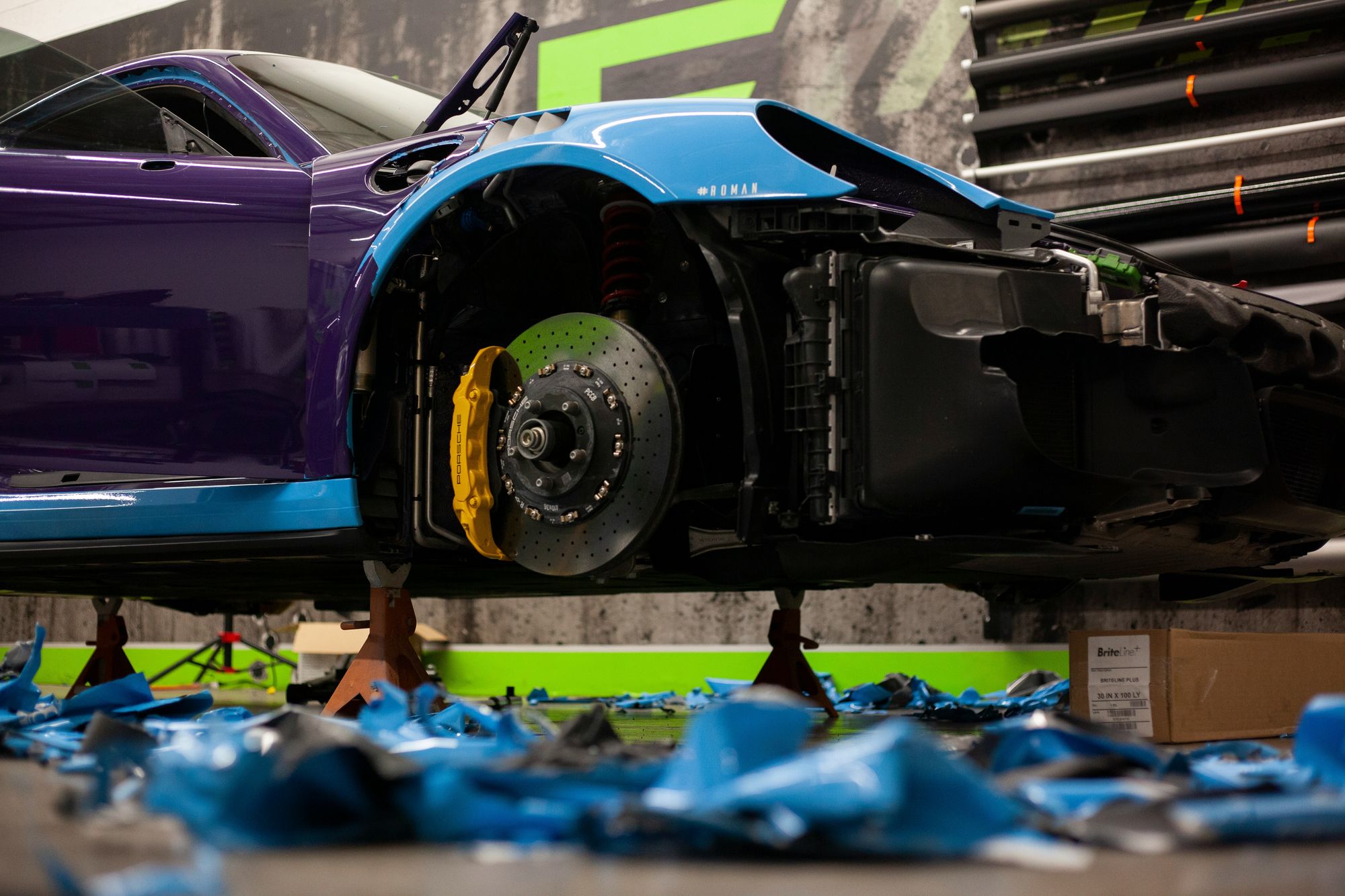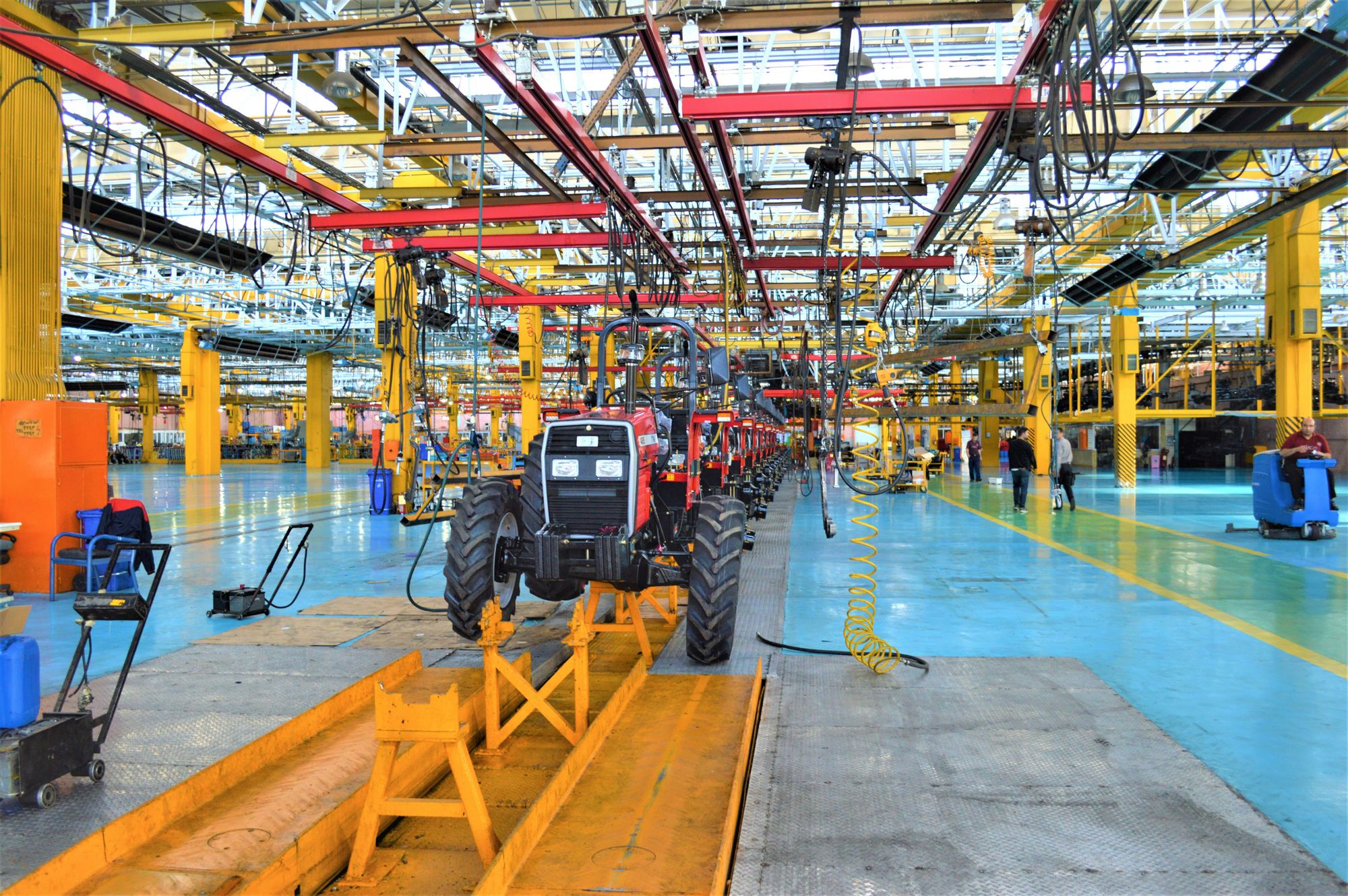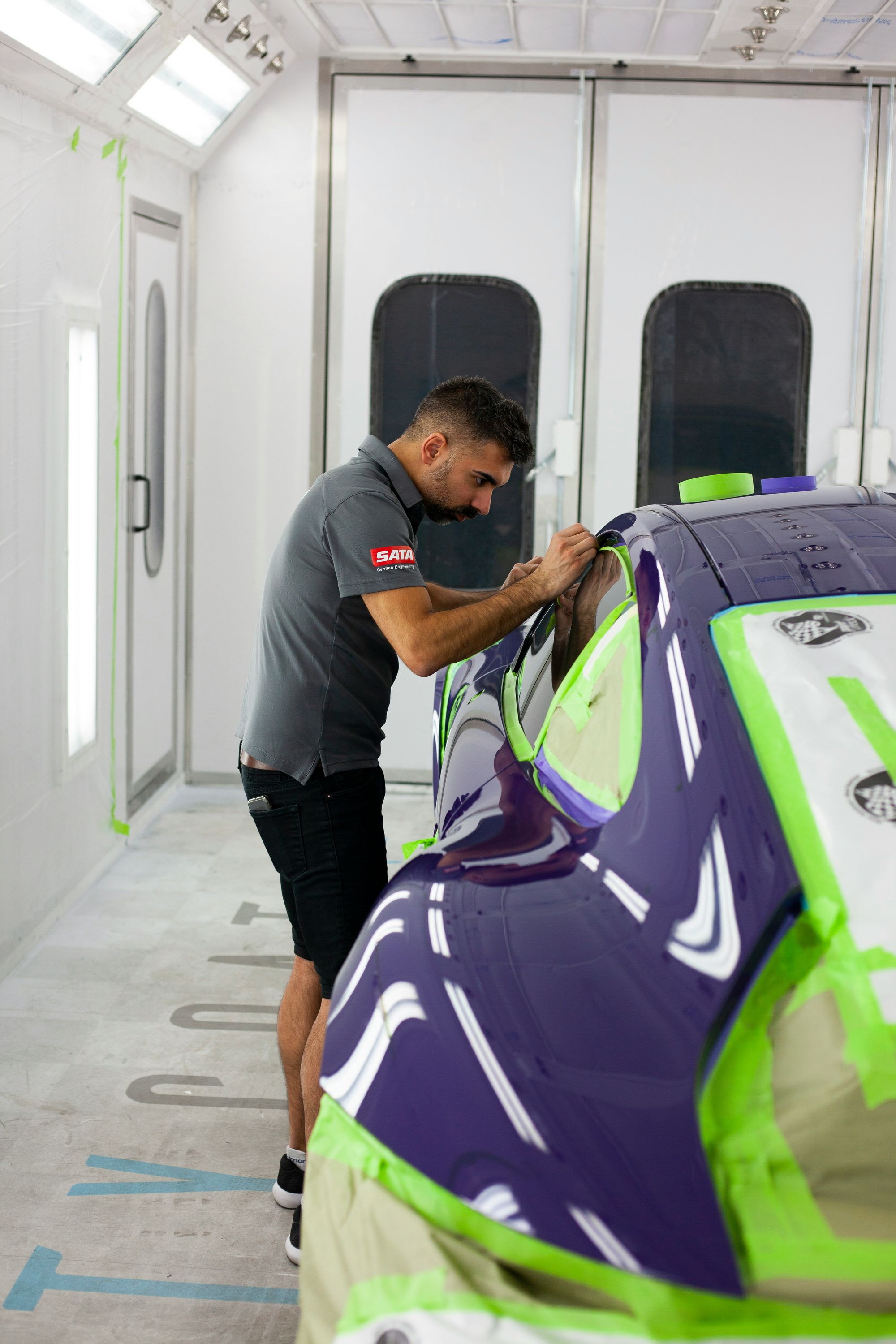Do you want to get a glimpse into the key trends and innovations in the automotive ERP software industry? Do you want to get a better understanding of which of these trends and innovations should you be looking for in your automotive ERP software? If your answer to these questions is yes, then you are on the right page.
In the ever-evolving landscape of the automotive industry, staying ahead of the curve requires more than just innovative vehicles; it demands cutting-edge approaches to managing operations, resources, and supply chains. At the heart of this evolution lies automotive ERP (Enterprise Resource Planning) systems, the backbone that orchestrates the intricate dance of production, distribution, and management within automotive companies.

As we stand on the cusp of a new era in automotive manufacturing and logistics, it's essential to explore the trends and innovations shaping the future of automotive ERP. In this exploration, we delve into the emerging trends and innovations poised to redefine automotive ERP systems.
The topics covered in this article are:
- What is Automotive ERP?
- Benefits of Automotive ERP
- The Future of Automotive ERP: Trends and Innovations
- How can Deskera as an Automotive ERP Help the Automotive Industry?
- Key Takeaways
- Related Articles
What is Automotive ERP?
Automotive ERP refers to specialized software systems designed to meet the unique needs and challenges of the automotive industry. These ERP systems are tailored to address various aspects of automotive manufacturing, distribution, and supply chain management.
Automotive ERP software typically integrates a wide range of functionalities to streamline operations, improve efficiency, and enhance decision-making within automotive companies.
Some key features of automotive ERP systems include:
- Supply Chain Management: Automotive ERP systems facilitate end-to-end supply chain visibility, from raw material procurement to final product delivery. They help optimize inventory levels, manage supplier relationships, and streamline logistics operations.
- Production Planning and Control: Automotive ERP software assists in planning and scheduling production activities, optimizing resource allocation, and monitoring production processes to ensure timely delivery and quality control.
- Inventory Management: ERP systems help automotive companies manage inventory levels, track stock movements, and optimize warehouse operations to minimize carrying costs and stockouts.
- Quality Management: Automotive ERP systems incorporate tools for monitoring and maintaining product quality throughout the manufacturing process. They enable compliance with quality standards and facilitate corrective and preventive actions to address quality issues.
- Financial Management: Automotive ERP software includes modules for managing financial transactions, budgeting, accounting, and financial reporting. These modules help automotive companies track expenses, manage cash flow, and comply with financial regulations.
- Customer Relationship Management (CRM): CRM functionalities within automotive ERP systems enable companies to manage customer interactions, track sales leads, and provide personalized services to customers.
- Compliance and Regulatory Management: Automotive ERP systems help companies navigate through regulatory requirements and compliance standards specific to the automotive industry. They facilitate adherence to environmental regulations, safety standards, and industry certifications.
- Business Intelligence and Analytics: Automotive ERP software includes tools for data analysis, reporting, and business intelligence. These functionalities provide insights into key performance metrics, trends, and opportunities, enabling informed decision-making.
Overall, automotive ERP systems play a crucial role in optimizing operations, improving collaboration, and driving innovation within automotive companies, helping them stay competitive in a rapidly evolving industry.
Benefits of Automotive ERP
Implementing an Automotive ERP system offers several benefits to automotive companies, including:
- Streamlined Operations: Automotive ERP systems integrate various business processes, such as supply chain management, production planning, inventory control, and financial management, into a single cohesive platform. This integration streamlines operations, reduces manual tasks, and enhances efficiency across the organization.
- Improved Visibility and Control: ERP systems provide real-time visibility into key metrics and performance indicators across different departments and functions. Automotive companies can gain insights into inventory levels, production schedules, sales forecasts, and financial data, enabling better decision-making and resource allocation.
- Enhanced Collaboration: ERP software facilitates communication and collaboration among departments, suppliers, and partners within the automotive supply chain. Centralized data repositories and collaborative workflows ensure that stakeholders have access to accurate and up-to-date information, fostering better coordination and alignment of objectives.
- Optimized Supply Chain Management: Automotive ERP systems enable companies to optimize their supply chain processes, from procurement and supplier management to distribution and logistics. By automating supply chain workflows, monitoring inventory levels, and tracking shipments, automotive companies can reduce lead times, minimize stockouts, and improve customer satisfaction.
- Increased Productivity: ERP software automates routine tasks, such as data entry, report generation, and reconciliation, freeing up employees to focus on value-added activities. By eliminating manual processes and reducing administrative overhead, automotive companies can improve productivity and operational efficiency.
- Better Decision-Making: With access to comprehensive data and analytics, automotive companies can make informed decisions based on real-time insights and predictive models. Automotive ERP systems enable scenario planning, trend analysis, and forecasting, empowering decision-makers to anticipate market changes, identify opportunities, and mitigate risks effectively.
- Cost Savings: By streamlining operations, optimizing inventory levels, and improving resource utilization, automotive ERP systems help reduce costs associated with excess inventory, stockouts, inefficiencies, and manual errors. Additionally, centralized data management and standardized processes can lead to cost savings in IT infrastructure and support.
- Compliance and Risk Management: ERP software includes features for managing regulatory compliance, quality standards, and risk mitigation within the automotive industry. By automating compliance checks, maintaining audit trails, and enforcing standard operating procedures, automotive companies can ensure adherence to regulatory requirements and industry standards.
Overall, automotive ERP systems provide automotive companies with a competitive edge by enabling them to streamline operations, enhance collaboration, make data-driven decisions, and adapt to changing market conditions effectively.
The Future of Automotive ERP: Trends and Innovations
While the automotive industry and thus automotive ERP is rapidly evolving and there are several new developments happening in the field, some key trends and innovations to consider:
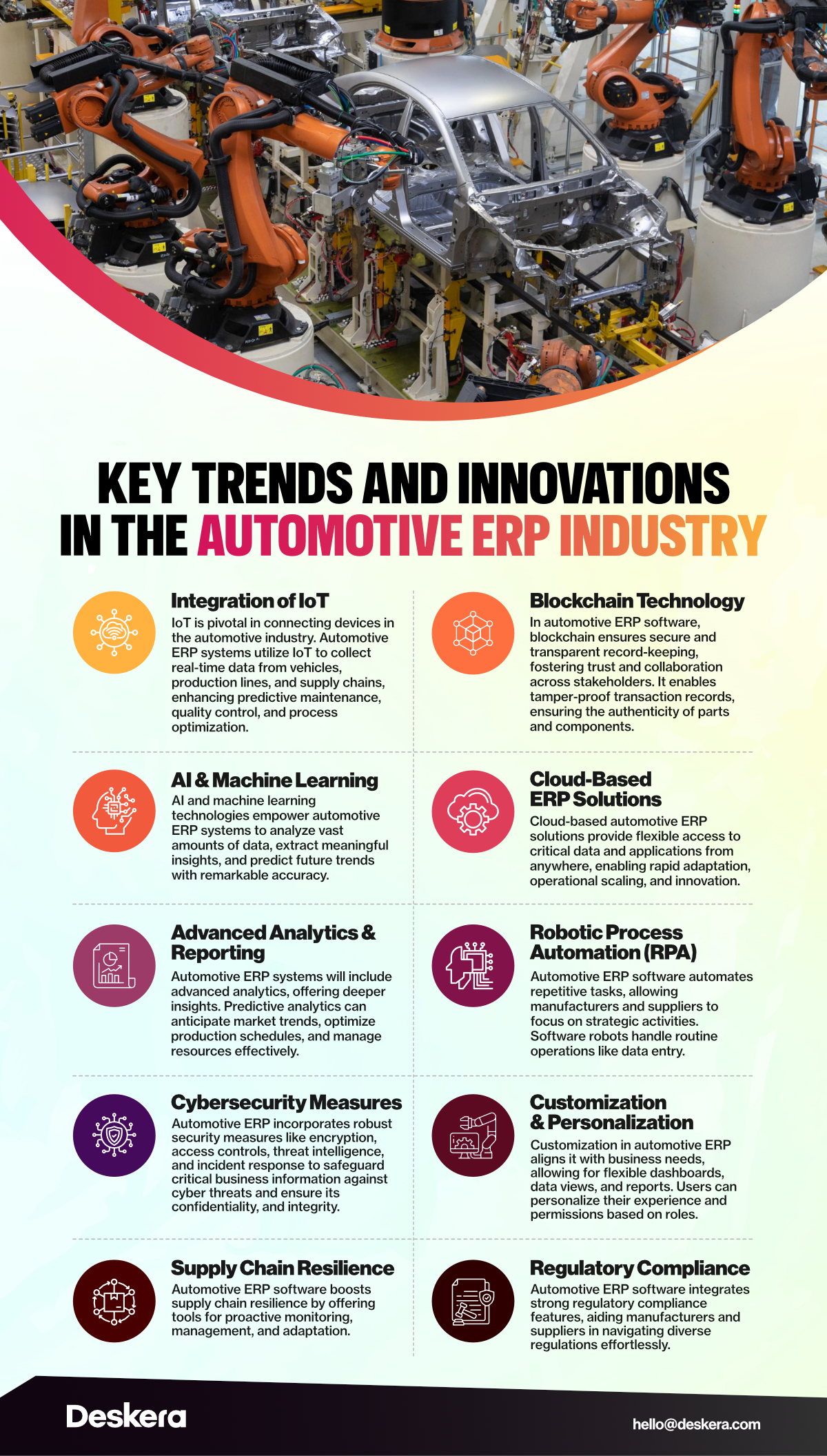
Integration of IoT (Internet of Things)
In the landscape of automotive ERP, the integration of IoT (Internet of Things) stands as a pivotal trend, poised to revolutionize the industry. IoT integration within automotive ERP software heralds a new era of interconnectedness and data-driven decision-making, leveraging a network of sensors and devices to optimize operations and enhance efficiency.
IoT-enabled automotive ERP systems empower manufacturers and suppliers with real-time insights into every facet of the automotive production process. By seamlessly connecting vehicles, production lines, and supply chain logistics, Automotive ERP software equipped with IoT capabilities enables unparalleled visibility and control over critical operations.
Through IoT integration, automotive companies can monitor equipment performance, track inventory levels, and proactively identify maintenance needs, thereby minimizing downtime and maximizing productivity. Real-time data streams provided by IoT sensors facilitate predictive maintenance strategies, ensuring that potential issues are addressed before they escalate, ultimately reducing maintenance costs and enhancing operational reliability.
Moreover, IoT-enhanced automotive ERP software plays a crucial role in quality control and compliance management. By collecting and analyzing data from sensors embedded within manufacturing processes, automotive ERP systems can detect anomalies and deviations from quality standards in real-time, enabling prompt corrective actions and preventing defective products from entering the market.
In the realm of supply chain management, IoT integration empowers automotive ERP solutions to optimize inventory levels, streamline logistics, and mitigate risks. By monitoring the movement of parts and components throughout the supply chain, automotive ERP systems equipped with IoT capabilities enable accurate demand forecasting, efficient inventory replenishment, and timely delivery of goods, thereby enhancing customer satisfaction and customer loyalty.
Furthermore, the utilization of IoT in automotive ERP software fosters a culture of continuous improvement and continuous innovation. By leveraging advanced analytics and machine learning algorithms on IoT-generated data, automotive companies can identify optimization opportunities, refine production processes, and drive operational excellence.
As the automotive industry continues to embrace digital transformation, the integration of IoT within automotive ERP software emerges as a cornerstone of future success. By harnessing the power of interconnected devices and real-time data analytics, automotive companies can unlock new levels of efficiency, agility, and competitiveness in an increasingly dynamic marketplace.
In conclusion, the future of automotive ERP lies in embracing IoT integration, leveraging its capabilities to drive innovation, optimize operations, and unlock unprecedented value across the automotive value chain. As technology continues to evolve, automotive ERP software will continue to evolve, empowering automotive companies to thrive in the digital age.
Blockchain Technology
In the realm of automotive ERP, the integration of blockchain technology emerges as a transformative trend, offering unparalleled transparency, security, and efficiency across the automotive value chain. Blockchain integration within automotive ERP software heralds a new era of trust and integrity, revolutionizing how automotive companies manage transactions, track assets, and ensure compliance.
Blockchain technology, renowned for its decentralized and immutable ledger system, holds immense potential in enhancing the integrity and traceability of automotive processes. Within automotive ERP software, blockchain facilitates secure and transparent record-keeping, enabling seamless collaboration and trust among stakeholders throughout the automotive ecosystem.
By leveraging blockchain within automotive ERP systems, manufacturers and suppliers can establish tamper-proof records of transactions, ensuring the authenticity and provenance of parts and components. Each transaction within the automotive supply chain, from procurement to production to distribution, is cryptographically secured within the blockchain, mitigating the risk of fraud, counterfeiting, and unauthorized alterations.
Moreover, blockchain integration empowers automotive ERP solutions to streamline compliance management and regulatory reporting. By maintaining a transparent and auditable record of regulatory requirements and certifications, automotive ERP systems equipped with blockchain capabilities enable automotive companies to demonstrate compliance with industry standards and government regulations effortlessly.
Furthermore, blockchain technology enhances supply chain resilience and risk management within automotive ERP software. Through blockchain-enabled smart contracts, automotive companies can automate contract execution and enforce predefined rules and conditions across the supply chain. This automation reduces administrative overhead, minimizes disputes, and ensures timely and accurate fulfillment of contractual obligations.
Additionally, blockchain integration fosters innovation and collaboration within the automotive industry. By providing a secure and decentralized platform for data sharing and collaboration, automotive ERP systems powered by blockchain facilitate the development of innovative business models, such as shared mobility services, vehicle-to-grid integration, and peer-to-peer transactions.
As the automotive industry embraces digital transformation, the integration of blockchain technology within automotive ERP software emerges as a cornerstone of future success. By leveraging blockchain's capabilities to enhance transparency, security, and collaboration, automotive companies can unlock new opportunities for efficiency, trust, and innovation in an increasingly interconnected world.
In conclusion, the future of automotive ERP lies in embracing blockchain technology, harnessing its potential to revolutionize how automotive companies manage transactions, track assets, and ensure compliance. As blockchain continues to evolve, Automotive ERP software will continue to evolve, empowering automotive companies to thrive in the digital age.
AI and Machine Learning
In the landscape of automotive ERP, the integration of AI (Artificial Intelligence) and machine learning emerges as a transformative trend, reshaping how automotive companies manage operations, optimize processes, and make data-driven decisions. AI and machine learning integration within automotive ERP software heralds a new era of intelligence and automation, enabling unprecedented levels of efficiency, agility, and innovation across the automotive value chain.
AI and machine learning technologies empower automotive ERP systems to analyze vast amounts of data, extract meaningful insights, and predict future trends with remarkable accuracy. By leveraging advanced algorithms and predictive models, automotive ERP software equipped with AI capabilities enables automotive companies to forecast demand, optimize inventory levels, and anticipate maintenance needs, thereby enhancing operational efficiency and minimizing costs.
Furthermore, AI-powered automotive ERP solutions facilitate adaptive and personalized decision-making, tailored to the specific needs and preferences of automotive manufacturers and suppliers. Through continuous learning and optimization, automotive ERP systems can dynamically adjust production schedules, allocate resources, and optimize supply chain logistics in real-time, maximizing productivity and responsiveness to market demand fluctuations.
Moreover, AI and machine learning integration enhance quality control and defect detection within automotive ERP software. By analyzing sensor data and production metrics, automotive ERP systems can identify anomalies and deviations from quality standards, enabling early intervention and corrective actions to prevent defects and ensure product integrity.
Additionally, AI-enabled automotive ERP solutions streamline procurement and supplier management processes, optimizing sourcing strategies, and enhancing supplier collaboration. By analyzing supplier performance data and market trends, ERP systems can identify strategic sourcing opportunities, negotiate favorable terms, and mitigate supply chain disruptions and risks, ultimately driving cost savings and competitive advantage.
As the automotive industry embraces digital transformation, the integration of AI and machine learning within automotive ERP software emerges as a cornerstone of future success. By harnessing the power of intelligent automation and predictive analytics, automotive companies can unlock new opportunities for innovation, efficiency, and competitiveness in an increasingly dynamic and interconnected marketplace.
In conclusion, the future of automotive ERP lies in embracing AI and machine learning technologies, leveraging their capabilities to drive intelligence, automation, and optimization across the automotive value chain. As AI continues to evolve, automotive ERP software will continue to evolve, empowering automotive companies to thrive in the digital age.
Cloud-Based ERP Solutions
Cloud-based ERP solutions are at the forefront of reshaping the automotive industry's approach to enterprise resource planning. As automotive companies navigate the complexities of modern business environments, cloud-based automotive ERP software emerges as a transformative trend, offering unparalleled flexibility, scalability, and accessibility. This innovation heralds a new era of agility, efficiency, and collaboration across the automotive value chain.
Cloud-based automotive ERP solutions empower manufacturers and suppliers with any-time, anywhere access to critical business data and applications. By leveraging the scalability and resilience of cloud infrastructure, automotive ERP systems enable automotive companies to adapt quickly to changing market dynamics, scale operations seamlessly, and drive innovation without the constraints of traditional on-premises systems.
Moreover, cloud-based automotive ERP solutions facilitate real-time collaboration and communication among stakeholders within the automotive ecosystem. Through centralized data repositories and collaborative workflows, automotive ERP software fosters seamless integration and information sharing across departments, suppliers, and partners, enhancing visibility, transparency, and decision-making.
Furthermore, cloud-based automotive ERP systems offer enhanced security and compliance features, ensuring the integrity and confidentiality of sensitive data. With robust encryption, authentication, and access controls, automotive ERP software deployed on cloud platforms provides automotive companies with peace of mind, knowing that their critical business information is protected against cyber threats and unauthorized access.
Additionally, cloud-based automotive ERP solutions drive cost savings and operational efficiency for automotive companies. By eliminating the need for upfront investments in hardware infrastructure and reducing ongoing maintenance and support costs, cloud-based automotive ERP software delivers a compelling return on investment while enabling organizations to focus resources on core business priorities and strategic initiatives.
As the automotive industry embraces digital transformation, the adoption of cloud-based ERP solutions emerges as a cornerstone of future success. By harnessing the power of cloud technology, automotive companies can unlock new opportunities for innovation, agility, and competitiveness in an increasingly interconnected and fast-paced marketplace.
In conclusion, the future of automotive ERP lies in embracing cloud-based solutions, leveraging their capabilities to drive efficiency, collaboration, and resilience across the automotive value chain. As cloud technology continues to evolve, automotive ERP software will continue to evolve, empowering automotive companies to thrive in the digital age.
Advanced Analytics and Reporting
Advanced analytics and reporting are poised to revolutionize the automotive industry's approach to enterprise resource planning (ERP). Within automotive ERP software, the integration of advanced analytics capabilities heralds a new era of data-driven decision-making, enabling automotive companies to gain deeper insights, optimize processes, and drive innovation across the value chain.
Advanced analytics within automotive ERP systems empower manufacturers and suppliers with sophisticated tools for data analysis, modeling, and visualization. By leveraging advanced algorithms and machine learning techniques, automotive ERP software enables automotive companies to uncover hidden patterns, detect anomalies, and predict future trends with unprecedented accuracy, thereby enhancing operational efficiency and strategic decision-making.
Moreover, advanced reporting functionalities within automotive ERP software enable automotive companies to generate customizable reports and dashboards, providing stakeholders with real-time visibility into key performance metrics and KPIs. Through interactive data visualization and drill-down capabilities, automotive ERP systems empower users to explore data insights, identify areas for improvement, and track progress toward business objectives.
Furthermore, predictive analytics within automotive ERP software enable proactive maintenance and risk management strategies. By analyzing historical data and sensor readings from vehicles and production equipment, automotive ERP systems can predict potential failures, schedule maintenance activities, and optimize asset utilization, ultimately reducing downtime and enhancing operational reliability.
Additionally, prescriptive analytics capabilities within automotive ERP software enable automotive companies to optimize production schedules, inventory levels, and supply chain logistics. By simulating different scenarios and recommending optimal courses of action, ERP systems empower decision-makers to make informed choices that maximize efficiency, minimize costs, and mitigate risks in a rapidly changing business environment.
As the automotive industry embraces digital transformation, the integration of advanced analytics and reporting within automotive ERP software emerges as a cornerstone of future success. By harnessing the power of data-driven insights, automotive companies can unlock new opportunities for innovation, competitiveness, and sustainability in an increasingly complex and dynamic marketplace.
In conclusion, the future of automotive ERP lies in embracing advanced analytics and reporting capabilities, leveraging their potential to drive efficiency, agility, and performance across the automotive value chain. As analytics technology continues to evolve, automotive ERP software will continue to evolve, empowering automotive companies to thrive in the digital age.
Robotic Process Automation (RPA)
Robotic Process Automation (RPA) is emerging as a transformative trend within the automotive industry's approach to enterprise resource planning. In automotive ERP software, the integration of RPA capabilities heralds a new era of automation and efficiency, empowering automotive companies to streamline workflows, eliminate manual tasks, and drive productivity across the value chain.
RPA within automotive ERP systems enables manufacturers and suppliers to automate repetitive and rule-based tasks, freeing up valuable human resources for more strategic and value-added activities. By deploying software robots to perform routine operations such as data entry, reconciliation, and report generation, automotive ERP software enhances operational efficiency, accuracy, and compliance while reducing the risk of errors and delays.
Moreover, RPA-enabled automotive ERP solutions facilitate seamless integration and interoperability with legacy systems and third-party applications. By automating data exchange and synchronization processes, automotive ERP systems ensure data consistency and integrity across disparate systems, enabling real-time information flow and decision-making within the automotive ecosystem.
Furthermore, RPA capabilities within automotive ERP software enable rapid process optimization and continuous improvement. By analyzing process workflows and identifying bottlenecks or inefficiencies, automotive ERP systems can automate workflow adjustments, task prioritization, and resource allocation, thereby optimizing operational performance and responsiveness to changing business requirements.
Additionally, RPA integration enhances regulatory compliance and audit readiness within automotive ERP software. By automating compliance checks, data validation, and audit trail generation, automotive ERP systems enable automotive companies to demonstrate adherence to industry regulations, standards, and best practices, thereby mitigating compliance risks and ensuring regulatory compliance.
As the automotive industry embraces digital transformation, the adoption of RPA within automotive ERP software emerges as a cornerstone of future success. By harnessing the power of automation, automotive companies can unlock new opportunities for efficiency, agility, and innovation in an increasingly competitive and dynamic marketplace.
In conclusion, the future of automotive ERP lies in embracing RPA capabilities, leveraging their potential to drive automation, efficiency, and scalability across the automotive value chain. As RPA technology continues to evolve, automotive ERP software will continue to evolve, empowering automotive companies to thrive in the digital age.
Cybersecurity Measures
As the automotive industry embraces digitalization, cybersecurity measures within automotive ERP software emerge as a critical focus area for safeguarding sensitive data, protecting intellectual property, and ensuring the integrity of business operations. With the increasing interconnectedness of automotive systems, the integration of robust cybersecurity measures stands as a pivotal trend, shaping the future of automotive ERP.
Cybersecurity measures within automotive ERP systems encompass a range of technologies and practices aimed at mitigating cyber threats, vulnerabilities, and risks. From data encryption and access controls to threat intelligence and incident response, automotive ERP software integrates multifaceted security measures to defend against evolving cyber threats and ensure the confidentiality, integrity, and availability of critical business information.
Moreover, automotive ERP software employs advanced authentication mechanisms such as multi-factor authentication (MFA) and biometric authentication to verify the identity of users and prevent unauthorized access to sensitive data and functionalities. By implementing strong authentication protocols, automotive ERP systems enhance user authentication and authorization, reducing the risk of credential theft and unauthorized access.
Furthermore, automotive ERP software incorporates encryption techniques to protect data both at rest and in transit, ensuring that sensitive information remains secure from unauthorized interception or tampering. By encrypting data using strong cryptographic algorithms, automotive ERP systems safeguard confidential business data, customer information, and intellectual property from unauthorized access or disclosure.
Additionally, automotive ERP software integrates continuous monitoring and threat detection capabilities to detect and respond to cybersecurity incidents in real-time. Through the use of intrusion detection systems (IDS), security information and event management (SIEM) solutions, and behavior analytics, automotive ERP systems proactively identify anomalous activities, suspicious behaviors, and potential security breaches, enabling swift and effective incident response.
As the automotive industry evolves, so too do the cybersecurity threats and challenges. Therefore, automotive ERP software undergoes regular security assessments, penetration testing, and vulnerability scans to identify and remediate security weaknesses before they can be exploited by malicious actors. By staying abreast of emerging threats and best practices, automotive ERP systems ensure that automotive companies remain resilient in the face of evolving cyber risks.
In conclusion, the future of automotive ERP relies on robust cybersecurity measures, ensuring the confidentiality, integrity, and availability of critical business information in an increasingly interconnected and digitalized environment. By integrating advanced security technologies and practices, automotive ERP software empowers automotive companies to mitigate cyber threats, safeguard sensitive data, and maintain trust and confidence in their digital operations.
Customization and Personalization
Customization and personalization capabilities within automotive ERP software are poised to redefine how manufacturers and suppliers tailor their automotive ERP systems to meet unique business needs, processes, and preferences.
As automotive companies strive for greater agility and competitiveness, the integration of customizable and personalized features emerges as a key trend shaping the future of automotive ERP.
Customization within automotive ERP systems enables manufacturers and suppliers to tailor the functionality, user interface, and workflows of their automotive ERP software to align with specific business requirements and operational workflows.
From configurable dashboards and data views to customizable reports and analytics, automotive ERP software empowers automotive companies to adapt and evolve their systems in response to changing business environments and strategic objectives.
Moreover, personalization capabilities within automotive ERP software enable individual users to customize their user experience, preferences, and access permissions based on their roles, responsibilities, and preferences.
By providing role-based access controls, personalized dashboards, and customizable alerts, automotive ERP systems enhance user productivity, efficiency, and satisfaction, fostering a culture of empowerment and engagement within the organization.
Furthermore, automotive ERP software offers modular and extensible architectures that enable seamless integration with third-party applications, plugins, and extensions.
By providing an open and flexible platform for customization and integration, automotive ERP systems enable automotive companies to leverage best-of-breed solutions, industry-specific modules, and custom-developed functionalities to address unique business requirements and workflows.
Additionally, automotive ERP software empowers manufacturers and suppliers with self-service customization tools and capabilities, enabling business users to configure, customize, and personalize their automotive ERP systems without extensive reliance on IT or external vendors.
Through intuitive configuration wizards, drag-and-drop interfaces, and user-friendly administration portals, automotive ERP systems democratize the customization process, empowering users to adapt their systems to evolving business needs with ease.
As the automotive industry evolves, automotive ERP software continues to evolve with it, providing increasingly sophisticated customization and personalization capabilities to meet the diverse needs and preferences of manufacturers and suppliers.
By embracing customization and personalization, automotive companies can optimize their automotive ERP systems for maximum efficiency, agility, and competitiveness in an ever-changing business landscape.
In conclusion, the future of automotive ERP lies in embracing customization and personalization capabilities, empowering manufacturers and suppliers to tailor their automotive ERP systems to meet unique business requirements, processes, and preferences.
By leveraging customizable and personalized features, automotive companies can optimize their automotive ERP systems for maximum efficiency, agility, and competitiveness in an increasingly dynamic and competitive marketplace.
Supply Chain Resilience
Supply chain resilience has become a focal point for the automotive industry, and its integration within automotive ERP software represents a critical trend shaping the future of automotive manufacturing and distribution.
As automotive companies navigate through disruptions and uncertainties, the ability to build resilience into their supply chains via automotive ERP systems emerges as a strategic imperative for sustaining operations and mitigating risks.
Automotive ERP software plays a pivotal role in enhancing supply chain resilience by providing manufacturers and suppliers with advanced tools and capabilities to monitor, manage, and adapt to disruptions proactively.
Through real-time visibility, predictive analytics, and scenario planning functionalities, automotive ERP systems empower automotive companies to anticipate and mitigate supply chain risks, ensuring continuity and reliability in the face of unforeseen challenges.
Moreover, automotive ERP software integrates supply chain orchestration capabilities that enable manufacturers and suppliers to collaborate closely with partners, suppliers, and distributors to optimize inventory levels, streamline logistics, and enhance agility.
By facilitating seamless communication and coordination across the supply chain ecosystem, automotive ERP systems enable automotive companies to respond quickly to changes in demand, supply, and market conditions.
Furthermore, automotive ERP software incorporates inventory optimization algorithms and demand forecasting models that enable manufacturers and suppliers to optimize inventory levels, minimize stockouts, and reduce excess inventory carrying costs.
By leveraging historical data, market trends, and predictive analytics, automotive ERP systems enable automotive companies to make informed decisions about inventory replenishment, allocation, and distribution, thereby enhancing supply chain efficiency and resilience.
Additionally, automotive ERP software integrates supply chain risk management functionalities that enable manufacturers and suppliers to identify, assess, and mitigate risks across the supply chain.
From geopolitical uncertainties and natural disasters to supplier disruptions and regulatory changes, automotive ERP systems enable automotive companies to monitor and manage a wide range of risks, ensuring continuity and reliability in their supply chain operations.
As the automotive industry evolves, so too does the complexity and volatility of global supply chains. automotive ERP software continues to evolve with advanced supply chain resilience features and capabilities, enabling manufacturers and suppliers to navigate through disruptions and uncertainties with confidence and agility.
In conclusion, the future of automotive ERP lies in enhancing supply chain resilience through advanced functionalities and capabilities that enable manufacturers and suppliers to monitor, manage, and adapt to disruptions proactively.
By leveraging automotive ERP software's supply chain resilience features, automotive companies can enhance their competitiveness, agility, and sustainability in an increasingly dynamic and uncertain business environment.
Regulatory Compliance
Regulatory compliance has become increasingly complex and stringent within the automotive industry, necessitating advanced capabilities within automotive ERP software to ensure adherence to evolving standards and regulations.
As automotive companies strive to maintain compliance while navigating through a landscape of changing regulations, the integration of innovative compliance features within automotive ERP systems emerges as a critical trend shaping the future of automotive manufacturing and distribution.
Automotive ERP software incorporates robust regulatory compliance functionalities that enable manufacturers and suppliers to navigate through a myriad of regulations, standards, and requirements seamlessly.
From environmental regulations and safety standards to data privacy laws and trade regulations, automotive ERP systems empower automotive companies to ensure compliance across various jurisdictions and regulatory bodies.
Moreover, automotive ERP software integrates compliance management tools and workflows that enable manufacturers and suppliers to document, track, and report compliance activities efficiently.
By centralizing compliance documentation, automating compliance checks, and generating audit trails, automotive ERP systems streamline compliance management processes, reducing administrative overhead and mitigating compliance risks.
Furthermore, automotive ERP software provides real-time monitoring and alerts for regulatory changes and updates, enabling manufacturers and suppliers to stay informed about evolving requirements and take timely actions to maintain compliance.
Through integration with regulatory databases, news feeds, and alert systems, automotive ERP systems enable automotive companies to proactively address compliance challenges and ensure adherence to regulatory deadlines and obligations.
Additionally, automotive ERP software incorporates features for managing product compliance and certifications throughout the product lifecycle. From product design and development to manufacturing and distribution, automotive ERP systems enable manufacturers and suppliers to track and document compliance with product safety regulations, emissions standards, and quality certifications, ensuring that products meet regulatory requirements and market expectations.
As the automotive industry continues to evolve, regulatory compliance remains a top priority for manufacturers and suppliers. automotive ERP software continues to evolve with advanced compliance features and capabilities, enabling automotive companies to navigate through regulatory complexities with confidence and ease.
In conclusion, the future of automotive ERP lies in embracing innovative compliance features and capabilities that enable manufacturers and suppliers to ensure adherence to evolving regulatory requirements seamlessly.
By leveraging automotive ERP software's compliance management functionalities, automotive companies can mitigate compliance risks, enhance regulatory transparency, and maintain trust and confidence in their operations.
How can Deskera as an Automotive ERP Help the Automotive Industry?
Deskera, as an automotive ERP solution, can significantly benefit the automotive industry by addressing its specific needs and challenges. Here's how:
- Streamlined Operations: Deskera Automotive ERP offers integrated modules for manufacturing, inventory management, procurement, sales, finance, and customer relationship management (CRM). By centralizing all operations within a single platform, it streamlines workflows, eliminates data silos, and improves efficiency across the organization.
- Supply Chain Management: Deskera Automotive ERP provides robust supply chain management features, allowing automotive companies to optimize procurement processes, manage vendor relationships, track inventory levels, and ensure timely delivery of parts and materials. This helps minimize supply chain disruptions and maintain production continuity.
- Production Planning and Scheduling: With Deskera Automotive ERP, automotive manufacturers can effectively plan and schedule production activities, allocate resources, and optimize production lines for maximum efficiency. Real-time visibility into production processes enables proactive decision-making and helps meet customer demand while minimizing costs.
- Quality Control: Deskera Automotive ERP includes comprehensive quality control tools to monitor and manage product quality throughout the manufacturing process. By tracking quality metrics, conducting inspections, and implementing corrective actions, automotive companies can ensure compliance with industry standards and customer requirements.

- Compliance Management: Deskera Automotive ERP helps automotive companies stay compliant with industry regulations, safety standards, and environmental requirements. It automates regulatory reporting, maintains audit trails, and ensures adherence to legal and regulatory obligations, minimizing the risk of non-compliance and associated penalties.
- Customer Relationship Management (CRM): Deskera Automotive ERP includes CRM functionalities to manage customer relationships, track sales leads, and provide personalized service to clients. By understanding customer preferences and behavior, automotive companies can enhance customer satisfaction, loyalty, and retention.
- Real-time Analytics and Reporting: Deskera Automotive ERP offers advanced analytics and reporting tools to provide real-time insights into key performance metrics, market trends, and business opportunities. By analyzing data from across the organization, automotive companies can identify areas for improvement, optimize processes, and make data-driven decisions.
- Scalability and Flexibility: Deskera Automotive ERP is scalable and flexible, allowing automotive companies to adapt and grow their systems as their business expands. Whether adding new users, locations, or product lines, Deskera Automotive ERP can accommodate increased transaction volumes and operational complexities without sacrificing performance or reliability.
- Mobile and Cloud Capabilities: Deskera Automotive ERP offers mobile and cloud-based functionalities, allowing users to access the system anytime, anywhere, and from any device. This flexibility enables remote workforce management, field service operations, and collaborative decision-making, enhancing agility and responsiveness.
- Support and Updates: Deskera provides comprehensive support services, including implementation assistance, training, technical support, and software updates. Continuous vendor support ensures the smooth operation of the ERP system and helps automotive companies maximize the value of their investment over time.
Key Takeaways
The future of Automotive ERP is characterized by innovation, adaptability, and resilience. As automotive companies embrace digital transformation, ERP systems will play a central role in driving efficiency, optimizing operations, and enabling strategic decision-making.
By leveraging advanced technologies, prioritizing supply chain resilience, and ensuring compliance and security, automotive companies can navigate the complexities of the modern automotive industry with confidence and success. As we look ahead, the evolution of Automotive ERP will continue to shape the future of automotive manufacturing, distribution, and beyond.
Some of the key trends and innovations in the automotive ERP software industry are:
- Integration of IoT (Internet of Things): IoT plays a crucial role in connecting devices and sensors in the automotive industry. Automotive ERP systems can leverage IoT to gather real-time data from vehicles, production lines, and supply chain processes. This data can be used for predictive maintenance, quality control, and overall process optimization.
- Blockchain Technology: Blockchain can enhance transparency and traceability in the automotive supply chain. Automotive ERP systems may incorporate blockchain to create secure and immutable records of transactions, ensuring the authenticity of parts and components.
- AI and Machine Learning: AI and machine learning capabilities can improve forecasting, demand planning, and decision-making within automotive ERP systems. These technologies can analyze vast amounts of data to identify patterns, optimize inventory levels, and enhance production efficiency.
- Cloud-Based ERP Solutions: Cloud-based automotive ERP solutions offer scalability, flexibility, and accessibility. They enable real-time collaboration among various stakeholders, including manufacturers, suppliers, and distributors. Cloud-based systems also facilitate easier software updates and reduce the need for extensive on-premises infrastructure.
- Advanced Analytics and Reporting: Automotive ERP systems are likely to incorporate more advanced analytics and reporting features, providing automotive companies with deeper insights into their operations. Predictive analytics can help in anticipating market trends, optimizing production schedules, and managing resources effectively.
- Robotic Process Automation (RPA): RPA can be applied to automate routine and repetitive tasks in ERP processes, such as data entry and reconciliation. This allows employees to focus on more strategic and value-added activities.
- Cybersecurity Measures: With the increasing connectivity of automotive systems, cybersecurity has become a critical concern. Future automotive ERP systems will likely include robust security measures to protect sensitive data and ensure the integrity of communication channels.
- Customization and Personalization: Automotive ERP systems may evolve to provide more customizable and personalized features to cater to the specific needs of different manufacturers and suppliers. This flexibility can enhance user experience and adaptability.
- Supply Chain Resilience: The COVID-19 pandemic highlighted the importance of resilient supply chains. Future ERP systems in the automotive industry may focus on building agility and adaptability to disruptions, incorporating features to manage and mitigate risks in the supply chain.
- Regulatory Compliance: As regulations in the automotive industry evolve, ERP systems will need to adapt to ensure compliance. This includes features for tracking and reporting on environmental standards, safety regulations, and other industry-specific requirements.
It's important to stay updated with the latest developments in technology and the automotive industry to understand how ERP systems continue to evolve in response to new challenges and opportunities.
Overall, Deskera automotive ERP empowers automotive companies to optimize operations, drive innovation, and maintain a competitive edge in the dynamic and challenging automotive industry.
By leveraging its integrated functionalities, real-time insights, and industry-specific features, automotive companies can streamline processes, enhance customer satisfaction, and achieve sustainable growth and success.
Related Articles
